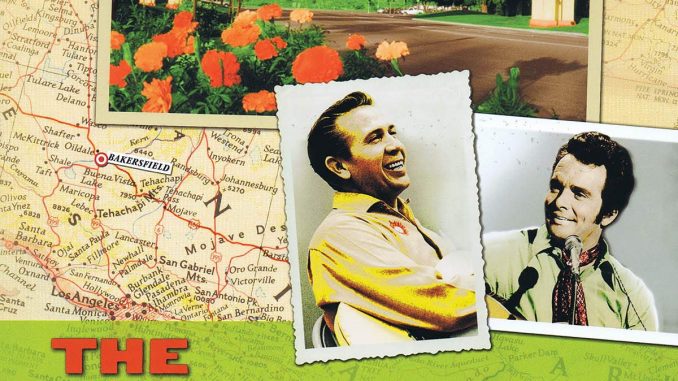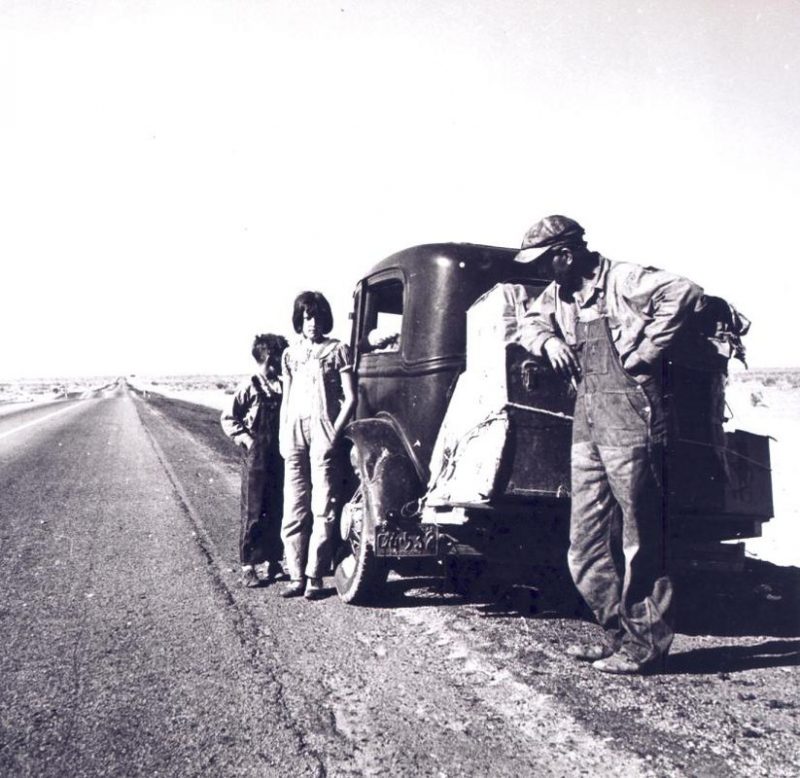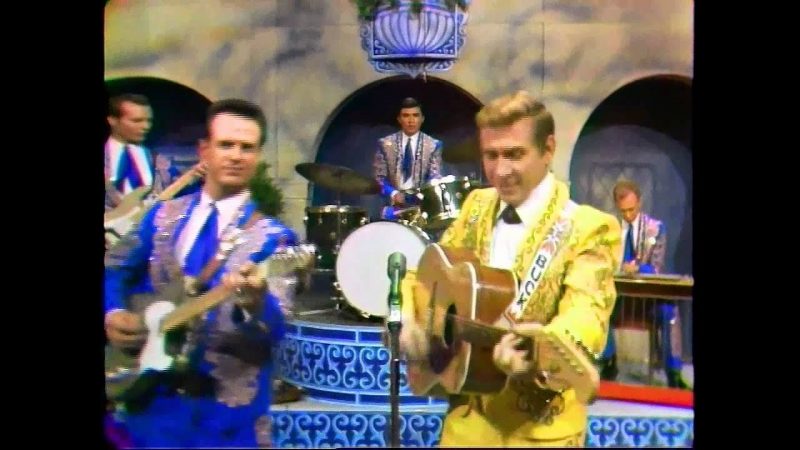
We’re back from our Summer Break with a new article in our Unsung Heroes of Americana series and we’re kicking off with a big one – a whole city, as we celebrate the importance of Bakersfield, California.
“You don’t know me but you don’t like me. You say you care less how I feel. How many of you that sit and judge me, ever walked the streets of Bakersfield?”
‘The Streets of Bakersfield’ was written by Homer Joy in 1973 and became a song widely associated with Buck Owens, one of the pioneers of the Bakersfield sound. Fifteen years later Owens would record the song as a duet with the main Keeper of the Flame when it comes to Bakersfield music, Dwight Yoakum, and they’d earn a Grammy Nomination for their efforts. How many people know where Bakersfield is and why it’s of importance to the music we all love? Why is Bakersfield an Unsung Hero of Americana?
Bakersfield is a large city in California’s Kern County, in fact, it’s the county seat of Kern County, with a population of circa 350,000. It lies just over 100 miles North West of L.A. Significantly, Kern County is a major oil producer, California’s largest, and the fourth largest agricultural centre in the United States.
 In the 1920s California started to experience an influx of poor agricultural workers, moving from Oklahoma and the neighbouring states, looking for work. With the ravages of the dust storms caused by the Dust Bowl in the early ’30s, that influx became a deluge as farms were destroyed and many people were left destitute. Though the Dust Bowl effect was felt throughout large areas of Texas, Arkansas, and parts of the mid-West, it was Oklahoma that the bulk of the migrants came from, so they became known as “Okies”. It’s estimated that something like 15% of the population of Oklahoma, during this period, ended up in California. This migration was the subject of John Steinbeck’s great American novel, “The Grapes of Wrath”, published in 1939, and of Woody Guthrie’s (himself an ‘Okie’) amazing 1940 debut album, “Dust Bowl Ballads”.
In the 1920s California started to experience an influx of poor agricultural workers, moving from Oklahoma and the neighbouring states, looking for work. With the ravages of the dust storms caused by the Dust Bowl in the early ’30s, that influx became a deluge as farms were destroyed and many people were left destitute. Though the Dust Bowl effect was felt throughout large areas of Texas, Arkansas, and parts of the mid-West, it was Oklahoma that the bulk of the migrants came from, so they became known as “Okies”. It’s estimated that something like 15% of the population of Oklahoma, during this period, ended up in California. This migration was the subject of John Steinbeck’s great American novel, “The Grapes of Wrath”, published in 1939, and of Woody Guthrie’s (himself an ‘Okie’) amazing 1940 debut album, “Dust Bowl Ballads”.
Conditions for the Okies on the farms in California were difficult, to say the least. Though faring much better than the Dust Bowl States, California had been affected by the market crash of the Great Depression and was ill-prepared for this influx from the southern mid-west and many of the migrants found themselves living in squatter camps and shantytowns, where disease ran rife due to poor sanitation. Many of these migrants had been successful farmers in better times, so the change in their circumstances was significant; those that survived the relocation brought about by the Dust Bowl became bitter and hard-bitten people and the rural working-class communities that grew up around cities like Bakersfield became known for their tough nature and a no-nonsense approach to life. One of the few things these beleaguered migrants had been able to bring with them to their new home was their music and the main music of the agricultural workers from these areas was Country. Often referred to as the “White Man’s Blues” because, like the Blues, much of the music was based on hard life experiences and getting by in the face of adversity, their’s was the traditional country music, born out of the folk music brought over by the European settlers and influenced by the music of the church and of the simple dance tunes that communities would rely on for entertainment but, being more southerly, the country music of the “Okies” would also include some influences from over the border in Mexico and it was elements of this that would start to come to the fore when the music moved with the farming migrants to California.

The ‘Bakersfield Sound’ starts to develop in the mid-1950s and is driven by the rough nature of the protagonists and a reaction against the Country music coming out of Nashville, that now bears little resemblance to the country music of the “Okies”. The Bakersfield sound is reckoned to be the first country music influenced by rock ‘n’ roll and it grows up in the honky-tonk bars around Bakersfield and neighbouring towns. Unlike the country music being recorded in Nashville at this time, which is predominantly acoustic and now heavily laden with lush string arrangements and orchestrated backing, the Bakersfield sound relies strongly on the new electric instruments associated with rock ‘n’ roll and with more upbeat melodies associated with Western Swing and Tejano music – because in the rowdy Honky Tonks you need something that cuts through the noise of the conversation and the brawling to make people pay attention! The first recorded example of the Bakersfield sound is reckoned to be the Bud Hobbs recording of ‘Louisiana Swing’, where you can clearly hear the influence of western swing music, the honky-tonk piano backing that typifies the genre, and an electric guitar solo from a young Buck Owens, who will become a star in his own right a few years later. Bakersfield country music is good time music; it’s what the rural working man wants to hear when he’s out with his friends for a night, when the farmhands and the roustabouts get together at the end of the working day to let off steam. He wants something he can dance to and that’ll be guaranteed to whip up a good time. The sound was pioneered by artists like Wynn Stewart and The Maddox Brothers and Rose but they weren’t the ones that brought it to the attention of a wider audience; that distinction goes to great country names like Buck Owens and Merle Haggard. They took this harder country sound out of the honky-tonk bars and brought it to the attention of mainstream audiences and, having borrowed from Rock ‘n’ Roll to establish the sound, it is the Bakersfield version of country that laid the foundation for country music’s acceptance by the rock fraternity; even The Beatles covered Buck and the sound is widely credited as being the starting point for both Outlaw Country and Country Rock. Bakersfield is the crucible where that whole Californian country sound first starts to take hold and there’s little doubt that, without the “Okies” bringing their simple country style music to the farmlands of Southern California, and without the evolution of that sound that started in the bars around Bakersfield, there might be no Gram Parsons, no Burrito Brothers, no Poco, no Eagles, no Creedence Clearwater Revival….
Bakersfield is a true Unsung Hero of Americana. I rest my case!


